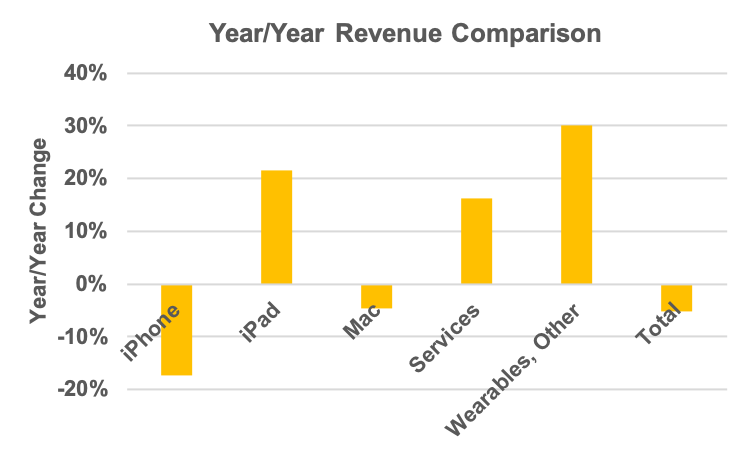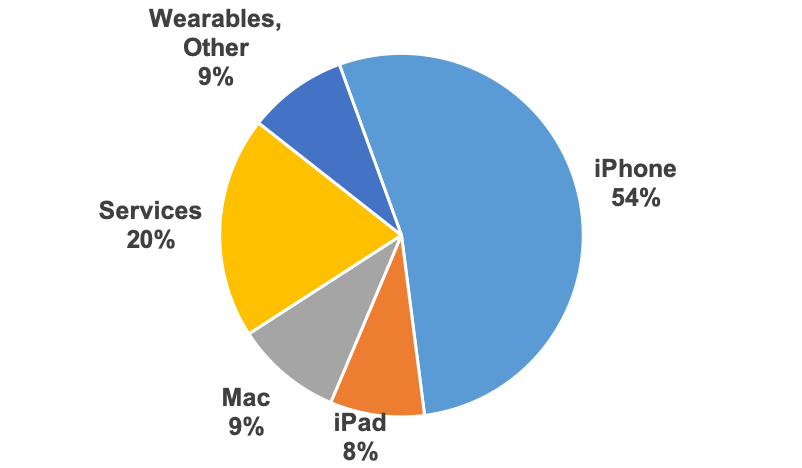Strong demand for Apple’s services, iPad, wearables and Mac computers wasn’t sufficient to offset weakness in iPhone sales, leading to a net 5 percent year-over-year (Y/Y) decline in revenue in the company’s second fiscal quarter (Q2). Apple’s Q2 revenue was $58 billion, with iPhone contributing $31.1 billion or 54 percent of the total. iPhone revenue was down 17 percent Y/Y, following a 15 percent Y/Y decline in Q1.


Despite two down quarters, CEO Tim Cook expressed a positive outlook for iPhone sales in China, the world’s biggest cellular market. “We saw a better Y/Y performance in the last weeks of the quarter as compared to the full quarter or November and December.” Cook attributed the improvement to four factors:
- Reduced iPhone pricing to offset the effect of the strong U.S. dollar “and then some.”
- Trade-in and financing programs, which makes it easier for consumers to buy new iPhones.
- Value-added tax (VAT) reduction from 16 percent to 13 percent, implemented by the Chinese government to encourage consumption.
- Increased consumer confidence from the improved trade outlook between China and the U.S.
From an RF component perspective, improving iPhone sales is always positive, given the significant RF content. The record Y/Y growth rates for iPad (22 percent) and wearables (50 percent) suggest sustained opportunities, although both product categories have less RF content, largely Wi-Fi connectivity.
Of the hardware products, only Mac revenue declined in the quarter, which Apple attributed to the limited supply of processors. Cook said, “We believe that our Mac revenue would have been up compared to last year without these constraints.”
What About 5G?
During the Q&A segment, Katy Huberty of Morgan Stanley asked Cook to comment on 5G and how meaningful it is “as a demand driver for upgrades in your iPhone installed base.” Cook admitted he was going to punt on the question, making a few generic and meandering comments, which you can hear for yourself:
Shannon Cross of Cross Research asked about the lawsuit settlement with Qualcomm. Cook said
"We're glad to put the litigation behind us, and all the litigation around the world has been dismissed and settled. We're very happy to have a multi-year supply agreement. And we're happy that we have a direct license arrangement with Qualcomm, which was, I know, important for both companies, and so we feel good about the resolution.”

